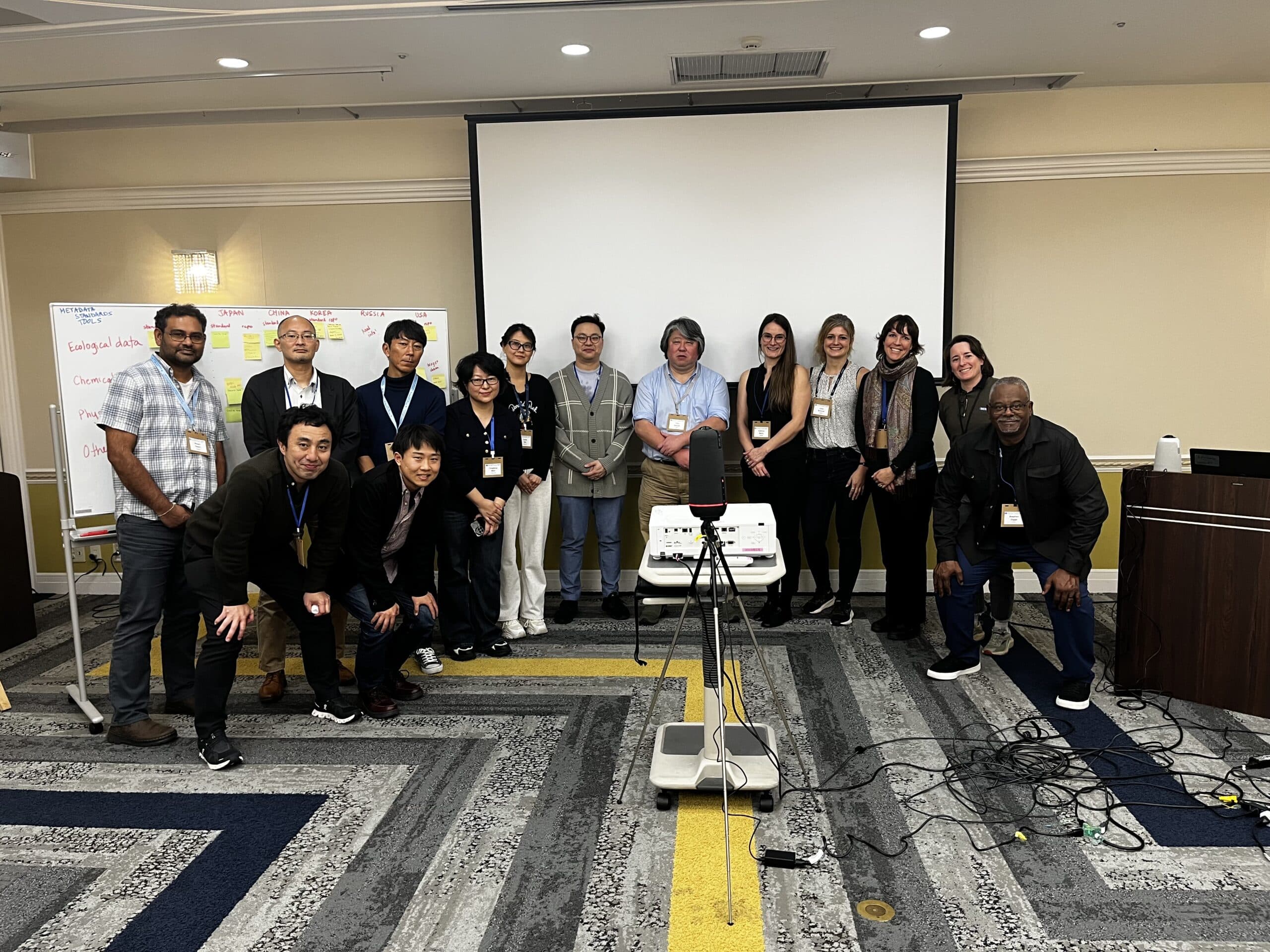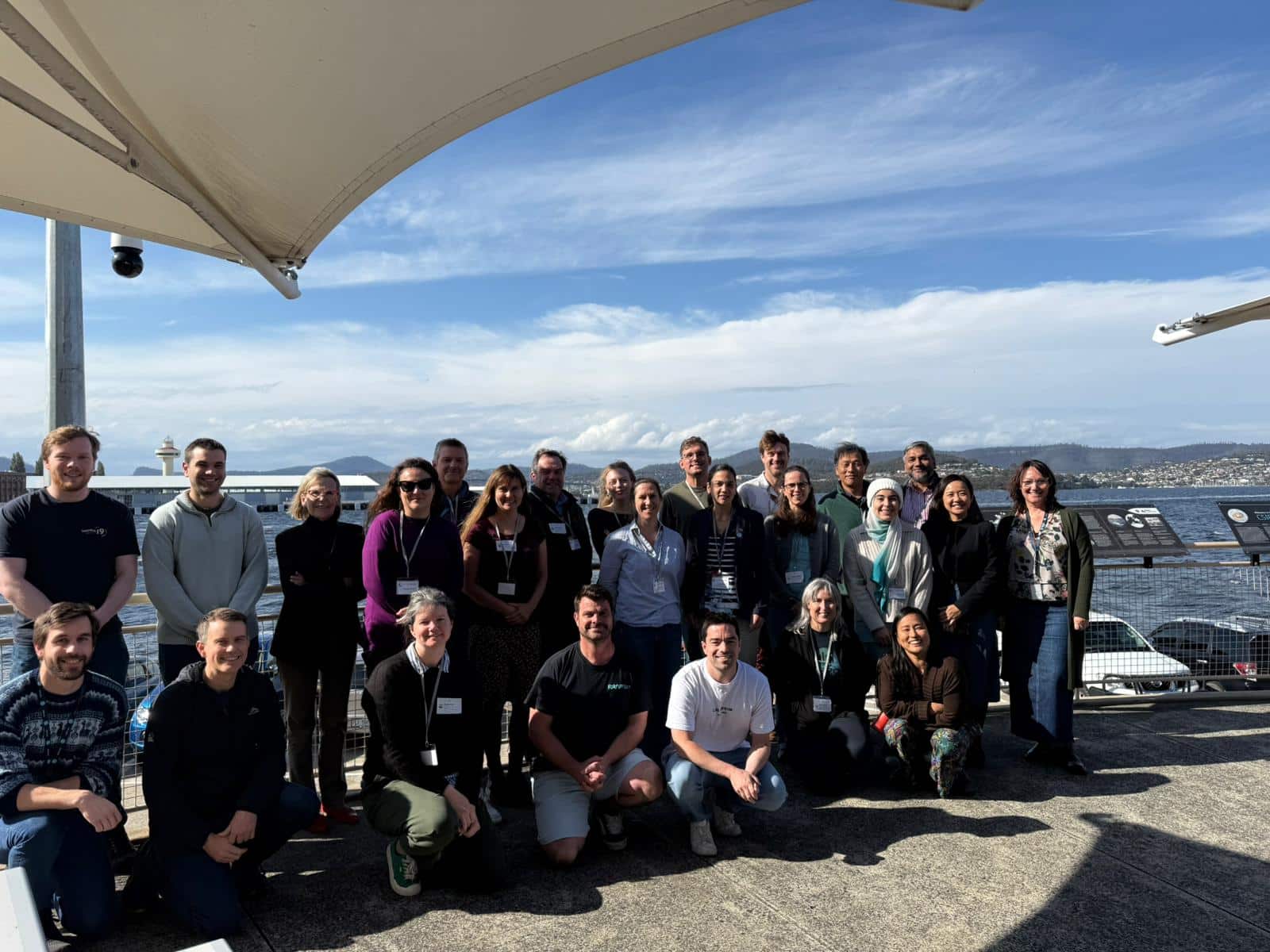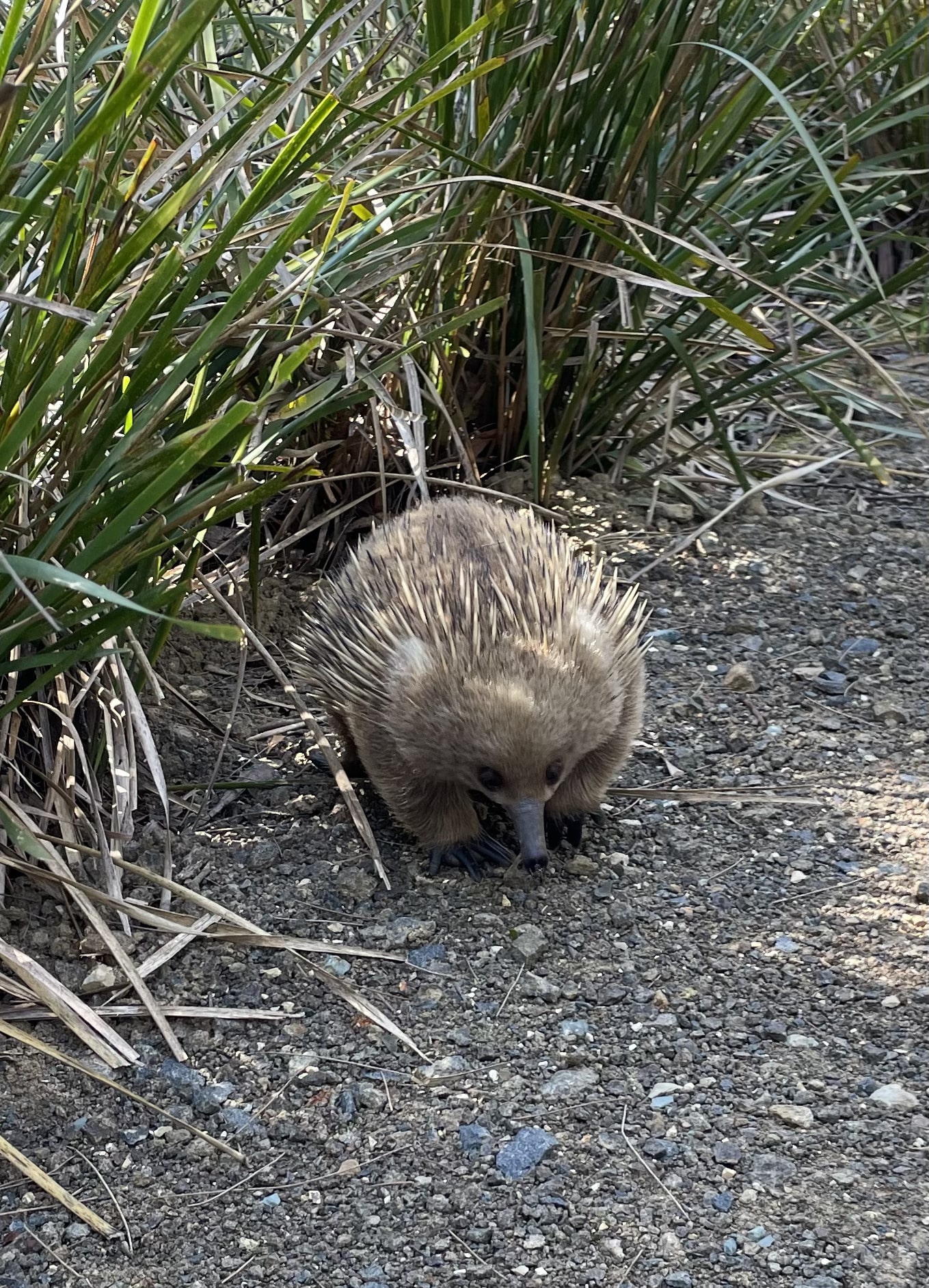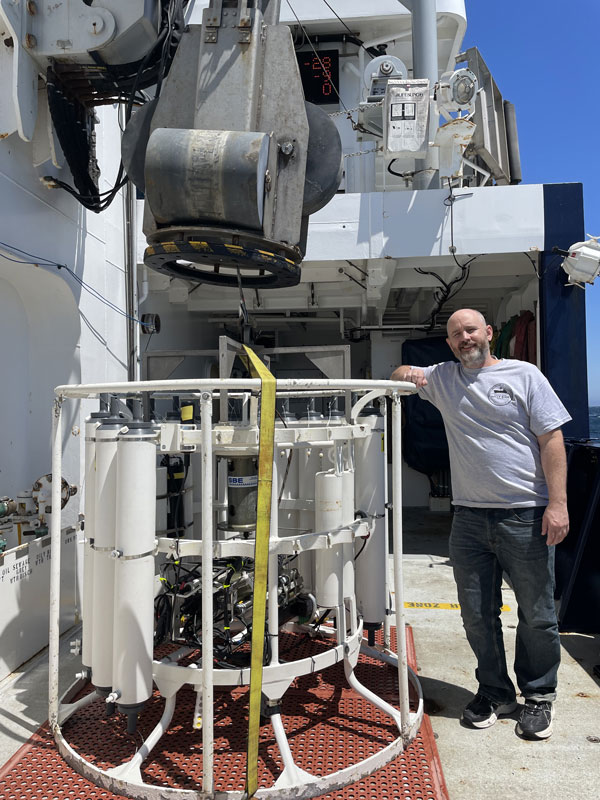
Ocean Biomolecular Observing Network (OBON) Annual Projects Meeting 2025

Written by: Dr. Nastassia Patin
CalCOFI Molecular Ecology Program Coordinator
The Ocean Biomolecular Observing Network is a program sponsored by the UN Decade of Ocean Science with a vision of creating a global, interconnected biodiversity observation system based on molecular tools such as environmental DNA (eDNA). Within OBON, many projects and working groups exist representing geographic regions (e.g., the North Pacific Ocean) or themes (e.g., methods standardization). I co-lead the West Coast OBON, which aims to bring together all eDNA-based marine biodiversity programs on the West Coast of North America. I recently traveled to the annual OBON Projects Meeting in Hobart, Tasmania, to present on our work from the past year and to build on our connectivity with other OBON projects.
In 2025, West Coast OBON facilitated two workshops, published a how-to guide on reference sequence generation (the “Introduction to Developing DNA Reference Barcode Sequences”), and worked closely with the Better Biomolecular Ocean Practices (BeBOP) project to generate standardized protocols. In addition to updating OBON on our work in California, I heard from current and new projects. Given our host country, it was particularly interesting to hear about work in the Western Pacific region. The Australian Microbiome Initiative, Pacific Islands Marine Bioinvasion Alert Network (PacMAN), and Make eDNA FAIR projects showcased fascinating work on the use of eDNA for research and management purposes. Professor and previous SIO Director, Margaret Leinen, presented on the progress of the Capacity Building Working Group to bring eDNA sampling and analysis capabilities to less developed nations. Additionally, as co-lead of the Reference Library Working Group, I facilitated a great discussion on the ways OBON can support improved reference sequence databases, a major challenge in generating accurate and comprehensive biodiversity data. The Working Group plans to submit a microgrant proposal to the Minderoo Foundation to support small-scale efforts to catalog biodiversity and generate associated reference sequences using the WC-OBON document as a guide.
Establishing and supporting a global network of biomolecular observations requires scientists worldwide to generate and publicize high-quality biodiversity data. Through OBON, we have made enormous progress in standardizing protocols, coordination sampling efforts, and ensuring that eDNA data are made FAIR (Findable, Accessible, Interoperable, and Reusable). This means working with individual researchers from under-represented countries and regions as well as with global databases like the Ocean Biodiversity Information System (OBIS). Through OBON, we are mobilizing eDNA expertise globally to coordinate scientific and data management efforts. I look forward to using what I learned from our projects meeting to continue developing West Coast OBON capacity to provide high-quality biomolecular data and contribute to our regional and global understanding of marine ecosystems.

Bonus echidna photo provided by Dr. Patin
The OBON 2025 Annual Meeting was held in Hobart, Tasmania.


